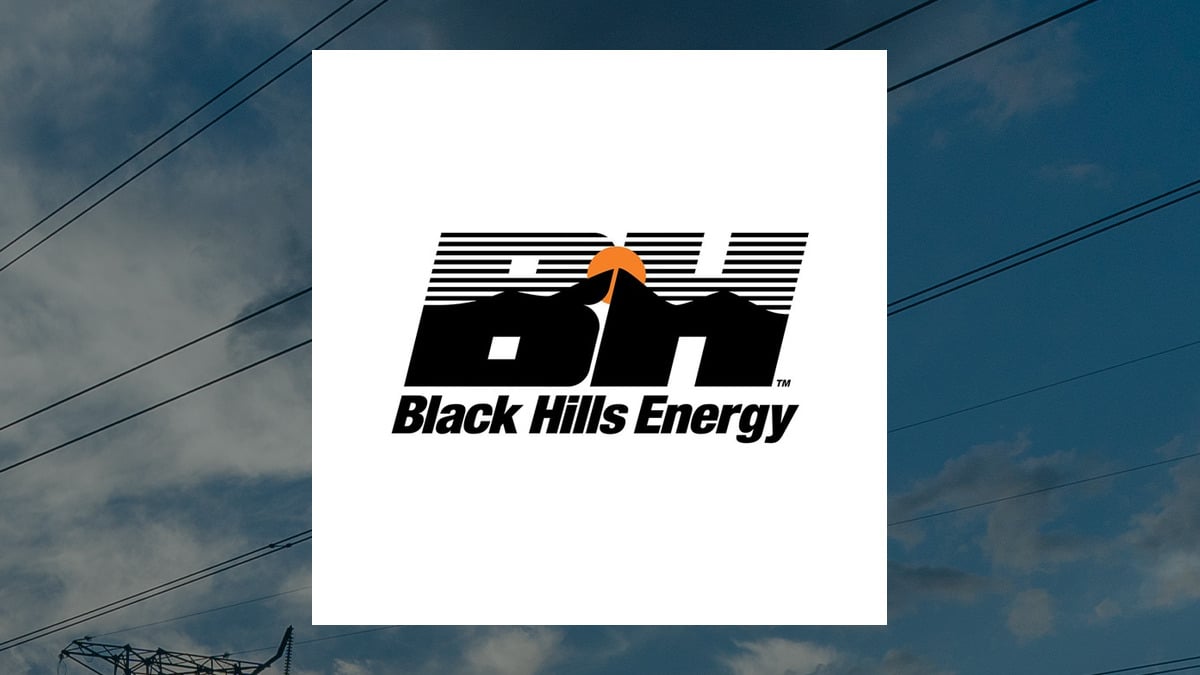Recent filings with the Securities & Exchange Commission indicate a notable shift in institutional investor sentiment concerning Black Hills Corporation (NYSE:BKH), a prominent player in the utility sector. Meeder Advisory Services Inc., for instance, significantly reduced its holdings in Black Hills Corporation by 12.2% during the first quarter, divesting 1,493 shares and retaining 10,731 shares valued at approximately $651,000. This strategic adjustment by Meeder provides an initial glimpse into the dynamic landscape of institutional investments surrounding the BKH stock.
Conversely, several other major institutional investors demonstrated a robust and increasing appetite for Black Hills Corporation shares during the fourth quarter. First Trust Advisors LP remarkably boosted its position by 309.5%, acquiring an additional 720,628 shares to reach a total of 953,431 shares, now valued at over $55.7 million. Bank of America Corp DE also saw a substantial increase, lifting its holdings by 203.6% to own 507,986 shares, worth close to $29.7 million, further underscoring varied approaches to this utility sector investment.
Capital Research Global Investors increased its stake by 21.5%, bringing its total to 1,845,088 shares valued at an impressive $107.9 million, solidifying its significant presence. Millennium Management LLC expanded its holdings by 113.6% to 463,459 shares worth $27.1 million, while Bessemer Group Inc. made an extraordinary leap in the first quarter, boosting its position by 38,974.6% to 218,818 shares, valued at $13.2 million. These diverse institutional investments highlight a complex interplay of strategies, with a substantial 86.71% of the BKH stock currently held by hedge funds and other large institutional entities.
Beyond portfolio adjustments, analyst sentiment offers another critical perspective on Black Hills Corporation. BMO Capital Markets recently initiated coverage on the BKH stock, assigning an “outperform” rating and setting a price objective of $68.00. This positive outlook from a major financial institution could signal confidence in the company’s future performance and its standing within the competitive utility sector.
From a market performance standpoint, shares of Black Hills Corporation opened at $57.14. The company commands a market capitalization of $4.14 billion, with a price-to-earnings (PE) ratio of 14.58, a price-to-earnings-growth (PEG) ratio of 2.62, and a beta of 0.70. These financial metrics provide a snapshot of the company’s valuation and volatility. Furthermore, the firm’s 50-day simple moving average stands at $57.01, while its 200-day simple moving average is $58.64, indicating recent trends in the BKH stock’s price movements.
Delving into the company’s financial health, Black Hills Corporation maintains a debt-to-equity ratio of 1.06, a quick ratio of 0.62, and a current ratio of 0.76. The stock has traded within a 1-year range of $54.92 to $65.59, reflecting its historical price volatility. These figures are crucial for investors assessing the company’s liquidity and leverage, offering a comprehensive view of its balance sheet strength within the utility sector.
The company also delivered its latest earnings results, reporting $0.38 earnings per share (EPS) for the quarter, aligning precisely with analysts’ consensus estimates. Black Hills Corporation’s revenue for the quarter reached $439.00 million, surpassing analyst expectations of $412.69 million and marking an 8.9% increase year-over-year. With a net margin of 12.67% and a return on equity of 7.83%, the company demonstrates solid profitability. Analysts project Black Hills Corporation to post $4.12 EPS for the current fiscal year, indicating continued growth prospects for this utility sector entity.
In addition to its financial performance, Black Hills Corporation recently declared a quarterly dividend of $0.676, slated for payment on Tuesday, September 2nd, to stockholders of record by August 18th. This translates to an annualized dividend of $2.70 and an attractive dividend yield of 4.73%. With a dividend payout ratio (DPR) currently at 68.88%, the company reinforces its commitment to returning value to shareholders, making it a potentially appealing option for income-focused investors looking at stable institutional investments.
Black Hills Corporation itself operates as a diversified electric and natural gas utility company across the United States, serving approximately 222,000 electric utility customers in Colorado, Montana, South Dakota, and Wyoming. Its Electric Utilities segment boasts 1,394 megawatts of generation capacity and an extensive network of 9,106 miles of electric transmission and distribution lines, illustrating its robust infrastructure and integral role in providing essential services across its operational regions. This foundational business stability underpins much of the investment activity observed in its BKH stock.





Leave a Reply